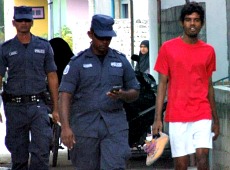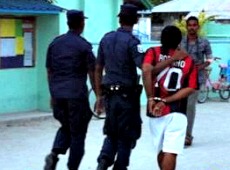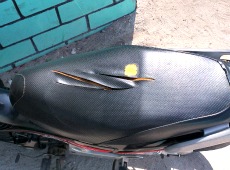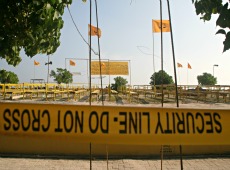The Maldivian Democratic Party (MDP) have accused Minister of Home Affairs Dr Mohamed Jameel of attempting to influence an ongoing court case against former President Mohamed Nasheed.
The party has previously alleged the charges against Nasheed – of illegally detaining Chief Judge of the Criminal Court Abdulla Mohamed in the final days of his presidency – are a politically-motivated attempt to prevent him competing in the upcoming election.
Jameel was reported in local media as stating that it was “crucial to conclude the case against Nasheed before the approaching presidential elections, in the interests of the nation and to maintain peace in it.”
Jameel, who served as Justice Minister under the tenure of former President Maumoon Abdul Gayoom, said that delaying the trial against Nasheed for “the abduction of a judge” risked “compromising national interest”.
He alleged the delay was due to “various reasons”, and would very likely have “adverse effects on the political and social fabric of the nation”.
“If things happen this way, people will start believing that it was due to the failure to address some issues in the Maldives’ judicial system, which need to be looked into. And in my opinion, the courts will have to take responsibility for this,” Jameel said in his interview with news website Haveeru.
Expressing concern that it would be an “extremely worrisome matter” if people started speculating that the reason for the delay in prosecuting Nasheed was that the country’s judiciary was not performing to par, Jameel said, “Every single day that goes by without the case being concluded contributes to creating doubt in the Maldivian people’s minds about the judiciary.”
Jameel stated that the case has a direct relation to the interest of the upcoming elections since the arrest of Abdulla Mohamed was a criminal case which involved citizens’ rights, trust of the judiciary, as well as the the running of the state.
Stating that the conclusion of the case was imperative for the sake of maintaining peace in the country in the upcoming days, Jameel added that it was constitutionally mandated for all involved to find methods to expedite such cases.
Minister attempting to influence courts: MDP
Following Jameel’s remarks, former President Nasheed released a statement condemning “attempts by the sitting Minister of Home Affairs, Dr Mohamed Jameel, to exert undue influence on the courts over the trial against President Mohamed Nasheed.”
The statement further expressed concern that a representative of the government had made such remarks while it had failed to date to act upon the recommendations of international organisations, including the UN Human Rights Commission (UNHRC), the International Commission of Jurists (ICJ) and the Commonwealth Ministerial Action Group (CMAG), to reform the judicial system.
“Just days after Commonwealth envoy Sir Don McKinnon left the Maldives, Dr Jameel calls on the judiciary to sentence the MDP’s presidential candidate,” said former Chairperson of the Maldivian Democratic Party (MDP), MP Mariya Ahmed Didi.
“MDP members believe Sir Don’s silence on the issue of Nasheed’s prosecution emboldened the Home Minister to make his comments,” she said.
“Jameel’s call on the courts to sentence President Nasheed prior to the presidential elections adds to the impression that the charges are politically motivated. We urge the Home Minister to refrain from intimidating and exerting undue influence on the the judiciary,” she added.
Nasheed has previously alleged that the objective of the trial was to obstruct him from contesting the upcoming presidential elections.
“The Prosecutor General’s only objective is to ensure that I cannot contest in the next presidential elections. To do so, he has identified an article which would provide just the required period of detention to cancel my candidacy,” Nasheed told an MDP rally in October 2012.
Nasheed is being tried under Article 81 of the Penal for the arrest of Criminal Court Chief Judge Abdulla Mohamed.
Article 81 of the Penal Code states that it is a criminal offence for any employee of the state to use the constitutional powers to arrest vested on him to deliberately arrest a person who has not committed a crime. The article further details that the maximum penalty for this offence is either a jail sentence or banishment for a period of up to three years, or a fine of up to MVR 2000 (US$130).
Home Minister Mohamed Jameel Ahmed was not responding to calls at the time of press.
 (0)Dislikes
(0)Dislikes (0)
(0)



